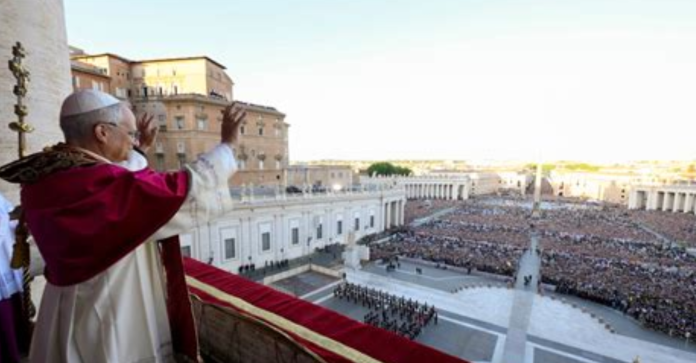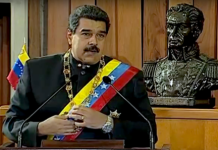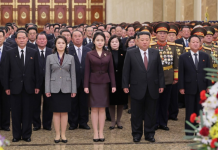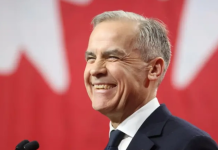In an unprecedented moment for the Roman Catholic Church, Cardinal Robert Francis Prevost of Chicago has been elected as the 267th pontiff, becoming the first American pope in the Church’s nearly 2,000-year history. Now known as Pope Leo XIV, his election represents not only a monumental shift in ecclesiastical tradition but also a striking testament to the evolving global face of Catholicism.
A Conclave That Made History
White smoke rose from the chimney of the Sistine Chapel on May 8, 2025, signaling the decision by the College of Cardinals. Their choice, Cardinal Prevost, marks a major departure from centuries of European dominance in papal selections. As a Chicago-born cleric and longtime missionary in Peru, his appointment resonated with Catholics around the world who seek broader representation in Church leadership.
Prevost was chosen during a relatively quick conclave, suggesting early consensus among cardinals. According to the Associated Press and CNN, his reputation for compassion, sound governance, and a pastoral focus made him a natural choice. In his first public address, he greeted the world with “Peace be with you,” emphasizing his desire for unity and dialogue in an era of division.
From Dolton to the Vatican
Born in 1955 in Chicago and raised in Dolton, Illinois, Prevost’s spiritual journey began early. He attended St. Mary’s parish, where he was deeply influenced by the local clergy. A neighbor once told him he would become pope, a statement that was once playful but now prophetic.
He joined the Augustinian order and dedicated decades of his life to missionary work in Peru, earning admiration for his dedication to social justice and his pastoral care. His understanding of Latin America, home to a significant portion of the world’s Catholics, helped him connect across cultures and continents.
In 2023, Pope Francis appointed him to lead the Vatican’s Dicastery for Bishops, a role with significant influence over the global hierarchy of the Church. His effectiveness in that position, along with his experience in both pastoral and administrative roles, made him a strong candidate for the papacy.
Why the Name Leo XIV?
Choosing the name Leo XIV, Prevost paid homage to Pope Leo XIII, who served at the turn of the 20th century and was known for his intellectualism and forward-thinking views on workers’ rights and social teachings. Vatican historians interpret the name as a signal of Pope Leo XIV’s intent to blend tradition with reform and thoughtfulness.
His first words as pope echoed this dual mission. He called for a Church rooted in peace, humility, and engagement with the world’s most pressing challenges, including inequality, migration, and internal Church divisions.
The End of an Era, and the Start of Another
The idea of an American pope had long been considered unlikely. For decades, there was concern that the political and economic power of the United States could be conflated with ecclesiastical authority, making such a choice seem imprudent. Prevost’s election challenges that assumption and indicates a shift in global Catholic consciousness.
“This isn’t about geopolitics,” said Archbishop Bernard Hebda. “This is about the spiritual needs of a global Church. Robert Prevost has the heart of a pastor and the mind of a reformer.”
Outlets like the East Oregonian and La Times Español described the decision as reflective of the changing demographics of Catholicism, where the faithful are increasingly found in the Americas, Africa, and Asia.
Celebrations Across Continents
The announcement was met with jubilation in Chicago, where residents of Dolton and surrounding communities expressed pride in their hometown priest. At St. Mary’s, the parish where he once served as an altar boy, parishioners gathered to pray and celebrate.
Elsewhere, responses varied from surprise to hope. In Latin America, many saw in Pope Leo XIV a bridge between the Vatican and the developing world. At Providence College in Rhode Island and across dioceses in Florida and Nevada, reactions were marked by both astonishment and optimism.
Challenges Ahead for Leo XIV
As with all papacies, the road ahead is filled with trials. The Church continues to wrestle with internal tensions over doctrine, scandals related to abuse and transparency, and calls for modernization. Social media posts from Prevost’s past have already sparked debate, with some groups raising questions about his stance on LGBTQ+ rights and U.S. political issues.
Nonetheless, those who know him describe him as open-minded, thoughtful, and committed to dialogue. According to Vatican correspondent Vanessa Gera, “He listens even when he disagrees. That is a rare and vital quality for this moment.”
Leo XIV will also face global humanitarian challenges, including war, migration, and climate change, which have placed new moral demands on religious leadership. His papacy will be watched closely for signs of how he intends to lead in this new era.
A Moment for the Ages
For many Catholics, the election of Pope Leo XIV represents not just a change in leadership but a profound moment of inspiration. His life story, from the streets of Chicago to the pulpit of St. Peter’s Basilica, captures a broader narrative about faith, perseverance, and service.
Coverage from Time, National Geographic, and other international media outlets noted the symbolic power of his first blessing and his clear call for peace and unity. One neighbor from Dolton remembered how local kids once “played Mass” with the young Robert. “He always wanted to be a priest,” said his brother. “He never wanted to be famous, just faithful.”
In stepping onto the balcony as Pope Leo XIV, Robert Prevost offered more than a greeting. He offered a glimpse into the Church’s possible future—one more inclusive, more global, and more attuned to the cries of the world.





